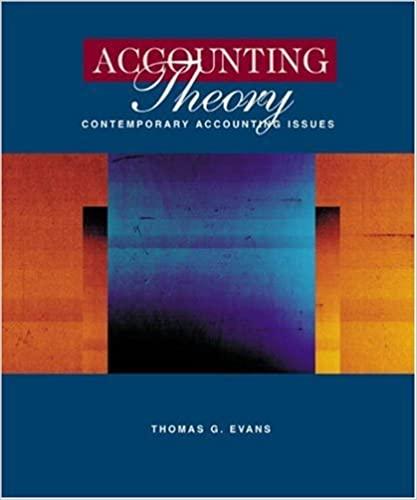| Cardinal Company is considering a project that would require a $2,765,000 investment in equipment with a useful life of five years. At the end of five years, the project would terminate and the equipment would be sold for its salvage value of $200,000. The companys discount rate is 12%. The project would provide net operating income each year as follows: | | | | Sales | | | $ | 2,861,000 | | Variable expenses | | | | 1,101,000 | | | | | | | | Contribution margin | | | | 1,760,000 | | Fixed expenses: | | | | | | Advertising, salaries, and other fixed out-of-pocket costs | $ | 705,000 | | | | Depreciation | | 513,000 | | | | | | | | | | Total fixed expenses | | | | 1,218,000 | | | | | | | | Net operating income | | | $ | 542,000 | | | | | | | | | | 1. | Which item(s) in the income statement shown above will not affect cash flows? (You may select more than one answer. Click the box with a check mark for correct answers and click to empty the box for the wrong answers.) | | | | | | | | Sales | | | Variable expenses | | | Advertising, salaries, and other fixed out-of-pocket costs expenses | | | Depreciation expense Click here to view Exhibit 11B-2, to determine the appropriate discount factor(s) using table. | 2. | What are the projects annual net cash inflows? $1,055,000 (already have this answer) | | 3. | What is the present value of the projects annual net cash inflows? (Use the appropriate table to determine the discount factor(s) and final answer to the nearest dollar amount.) Click here to view Exhibit 11B-1, to determine the appropriate discount factor(s) using table. | 4. | What is the present value of the equipments salvage value at the end of five years? (Use the appropriate table to determine the discount factor(s) and final answer to the nearest dollar amount.) Click here to view Exhibit 11B-1 and Exhibit 11B-2, to determine the appropriate discount factor(s) using tables. | 5. | What is the projects net present value? (Use the appropriate table to determine the discount factor(s) and final answer to the nearest dollar amount.) Click here to view Exhibit 11B-1 and Exhibit 11B-2, to determine the appropriate discount factor(s) using tables. | 6. | What is the project profitability index for this project? (Use the appropriate table to determine the discount factor(s) and final answer to 2 decimal places.) | | 7. | What is the projects payback period? (Round your answer to 2 decimal places.) | | | | | 8. | What is the projects simple rate of return for each of the five years? (Round your answer to 2 decimal places. (i.e 0.1234 should be entered as 12.34.)) | 12. | If the equipments salvage value was $400,000 instead of $200,000, what would be the projects simple rate of return? (Round your answer to 2 decimal places. (i.e 0.1234 should be entered as 12.34.)) Click here to view Exhibit 11B-1 and Exhibit 11B-2, to determine the appropriate discount factor(s) using tables. | 13. | Assume a postaudit showed that all estimates (including total sales) were exactly correct except for the variable expense ratio, which actually turned out to be 50%. What was the projects actual net present value? (Negative amount should be indicated by a minus sign. Use the appropriate table to determine the discount factor(s), Round other intermediate calculations and final answer to the nearest whole dollar.) | 14. | Assume a postaudit showed that all estimates (including total sales) were exactly correct except for the variable expense ratio, which actually turned out to be 50%. What was the projects actual payback period? (Round your answer to 2 decimal places.) | 15. | Assume a postaudit showed that all estimates (including total sales) were exactly correct except for the variable expense ratio, which actually turned out to be 50%. What was the projects actual simple rate of return? (Round your answer to 2 decimal places. (i.e 0.1234 should be entered as 12.34.)) | | | | | | | | | | | | | | |






